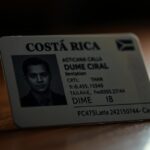How Long Can I Stay Outside Costa Rica with Residency?

Did you know that over 50,000 expats have chosen Costa Rica as their new home in the past decade? This Central American gem is renowned for its stunning landscapes, welcoming culture, and high quality of life. Whether you’re seeking temporary or permanent residency, this country offers a range of options to suit your needs.
From rentista and pensionado programs to investment-based residency, Costa Rica provides diverse pathways to establish your status. However, understanding the immigration laws and residency requirements is crucial to maintaining your legal standing. We’ll guide you through the process, ensuring you’re well-informed every step of the way.
With over 20 years of experience, we’ve helped countless individuals navigate the complexities of Costa Rican immigration. Whether you’re exploring temporary residency or aiming for permanent status, our expertise ensures a smooth and successful application process. Let’s dive into the details and make your transition seamless.
Understanding Costa Rica Residency Options
Costa Rica’s residency programs cater to a variety of lifestyles and financial situations. Whether you’re planning to retire, invest, or settle permanently, the country offers tailored pathways to meet your needs. Let’s explore the main options available and their unique benefits.
Overview of Rentista, Investment, and Permanent Residency
The Rentista program is ideal for those with a stable income of at least $2,500 per month. This option requires proof of income, such as a letter showing $60,000 to be transferred over two years. It’s a great choice for individuals seeking temporary residency with the potential to transition to permanent status.
For investors, the Inversionista program requires a minimum investment of $200,000 in real estate or approved projects. This pathway is perfect for those looking to contribute to the country’s economy while securing their residency. It also offers a clear route to permanent residency after three years.
Permanent Residency is the ultimate goal for many. After maintaining temporary residency for three years, applicants can apply for permanent status. This option provides long-term stability and the possibility of eventual citizenship.
Benefits of Each Residency Type
The Rentista program offers flexibility and a straightforward application process. It’s ideal for those who want to enjoy Costa Rica’s lifestyle without significant upfront investment. The Inversionista program, on the other hand, provides opportunities for business growth and property ownership.
Permanent Residency brings unmatched stability and access to social benefits like healthcare. It’s the best choice for those planning to make Costa Rica their forever home. Each option has its advantages, making it essential to choose the one that aligns with your goals.
Professional advice can help you navigate the complexities of the residency process. Our team has over 20 years of experience assisting clients in selecting the right program for their needs. Let us guide you toward a seamless transition to life in Costa Rica.
Key Residency Requirements and Immigration Process in Costa Rica
Securing residency in Costa Rica involves meeting specific documentation and legal requirements. The process is detailed, but with the right preparation, it can be smooth and efficient. Let’s break down the essential steps and documents needed to ensure your application is successful.
Documentation and Legal Requirements
To apply for residency in Costa Rica, you’ll need several key documents. These include a clean criminal record, birth certificate, and marriage certificate if applicable. All documents must be recent, typically issued within the last six months, and certified by the appropriate authorities.
Certified translations into Spanish are also required for documents not originally in the language. This ensures compliance with Costa Rican law. Working with legal experts can help streamline this process, as they are familiar with the latest immigration regulations.
Proof of income or investment is another critical component. For example, the Rentista program requires a bank letter showing a monthly income of $2,500. Similarly, the Pensionado program demands proof of a $1,000 monthly pension. Accurate documentation is essential to avoid delays or rejections.
Preparing your documents carefully is vital. Missing or outdated paperwork can slow down the application process. By following updated guidelines and seeking professional assistance, you can ensure a seamless experience. For more details on the residency process, visit our guide on obtaining residency in Costa.
How long can I stay outside Costa Rica with residency?
Maintaining your residency status in Costa Rica requires careful attention to travel rules. Temporary residents must follow specific guidelines to avoid jeopardizing their legal standing. Understanding these rules ensures you can travel without risking your residency.
Rules for Temporary Residency Absences
Temporary residents can stay outside Costa Rica for up to six months per year. This period is calculated based on the days you are physically absent from the country. Exceeding this limit may result in losing your residency status.
The absence period starts the day you leave Costa Rica and ends when you return. It’s essential to track your travel dates accurately. Missing this deadline can lead to complications in your residency process.
Calculating Allowed Absence Periods
To calculate your absence, count the days from your departure to your return. For example, if you leave on January 1st and return on June 30th, you’ve used your full six-month allowance. Staying beyond this period breaches immigration law.
Practical tips include keeping a travel journal or using digital tools to track your days abroad. This ensures you stay within the allowed limits and maintain your residency status. For more detailed guidance, visit our expert legal services page.
Understanding these rules is crucial for temporary residents. Proper planning and tracking can help you avoid unnecessary complications. Always consult with immigration experts to ensure compliance with Costa Rican law.
Managing Your Temporary Residency Status and Tourist Visa Limitations
Balancing temporary residency and tourist visa rules in Costa Rica can be tricky but manageable with the right approach. Understanding the interplay between these two statuses is essential to avoid legal complications. Let’s explore how to navigate these requirements effectively.
Understanding Tourist Visa Durations and Extensions
Tourist visas in Costa Rica typically allow stays of up to 180 days for U.S. and Canadian citizens. Other nationalities may have different durations, so it’s crucial to verify your specific visa rules. Overstaying can result in fines or even bans from re-entering the country.
For those with temporary residency, the visa process permits renewed entries even if your tourist visa expires. However, maintaining your residency status requires careful planning. Tracking your travel dates ensures you stay within the allowed limits and avoid jeopardizing your legal standing.
If you need more time in the country, visa extensions are an option. These allow an additional 60 days for a fee of $100. Border runs, where you exit and re-enter Costa Rica, can also reset your visa duration. Always consult immigration experts to ensure compliance with the latest laws.
Managing both temporary residency and tourist visas requires attention to detail. Proper planning and professional guidance can help you enjoy your time in Costa Rica without legal hassles. For personalized advice, reach out to our team of experts.
Special Circumstances and Exceptions in Residency Absence Guidelines
Navigating residency rules in Costa Rica becomes more manageable when you understand the exceptions. While temporary residents are typically limited to six months outside the country per year, certain situations allow for flexibility. These exceptions ensure that unforeseen circumstances don’t jeopardize your legal status.
Medical and Family Emergency Considerations
Costa Rican immigration law recognizes emergencies like serious illness or family crises as valid reasons for extended absences. If you face such situations, proper documentation is key. Medical records, hospital letters, or legal documents can support your case.
For example, if a family member abroad requires urgent care, you may qualify for an extension. Costa Rican authorities often grant leniency in these cases, provided you submit the necessary proof. Always consult with immigration experts to ensure your application is complete and accurate.
Strategies for Extended Travel Without Impacting Residency
Planning extended travel while maintaining your residency status requires careful preparation. Start by tracking your days outside Costa Rica to avoid exceeding the six-month limit. Use digital tools or a travel journal to stay organized.
If you anticipate needing more time abroad, consider applying for a reentry permit. This document allows you to stay outside the country for up to two years without losing your status. It’s a practical solution for those with long-term travel plans.
Additionally, keep strong ties to Costa Rica. Maintain a residence, pay taxes, and keep bank accounts active. These actions demonstrate your commitment to the country and can help protect your residency status.
Understanding these exceptions and strategies ensures you can travel confidently without risking your legal standing. For personalized guidance, consult with immigration professionals who specialize in Costa Rican law.
Preparing a Successful Residency Application
A well-prepared residency application is the foundation for a smooth transition to life in Costa Rica. The process requires attention to detail and thorough documentation to demonstrate your eligibility. By gathering the necessary materials and organizing them effectively, you can streamline the application process and avoid delays.
Gathering Necessary Documents and Proof of Eligibility
The first step in applying for residency in Costa Rica is assembling the required documents. These include proof of income, bank letters, and criminal background certificates. For example, the Rentista program requires a monthly income of $2,500, while the Pensionado program demands proof of a $1,000 pension.
All documents must meet Costa Rican legal standards. This includes having them translated into Spanish and certified by the appropriate authorities. Ensuring your paperwork is accurate and up-to-date is crucial to avoid complications during the application process.
Organizing your documents in advance can save time and reduce stress. Create a checklist to track what you’ve gathered and what’s still needed. This approach helps ensure nothing is overlooked and keeps the process on track.
Working with legal experts can also make a significant difference. They understand the latest immigration laws and can guide you through the process efficiently. For personalized assistance, visit our Costa Rica legal services page.
Starting your preparation early is key. The residency process can take time, and having all your documents ready well in advance ensures a smoother experience. With careful planning and professional support, you can achieve your goal of living in this beautiful country.
Conclusion
Understanding the nuances of residency and immigration in Costa Rica ensures a smooth transition to your new life. Proper planning and compliance with legal requirements are essential to maintaining your status. Whether you’re exploring temporary residency or aiming for permanent status, accurate documentation and adherence to rules are key.
Special circumstances, such as medical or family emergencies, are considered within Costa Rican law. This flexibility allows you to address unexpected situations without jeopardizing your residency. Staying informed and prepared helps you navigate these scenarios confidently.
For personalized guidance, our team of experts is here to assist. Visit our residency benefits page for more details. With informed planning and professional support, you can secure your residency status and enjoy long-term success in this beautiful country.
Article by Jonnathan Morales
Start Today!
Call or WhatsApp (+506) 7182-8969
https://www.jaroscr.com/


